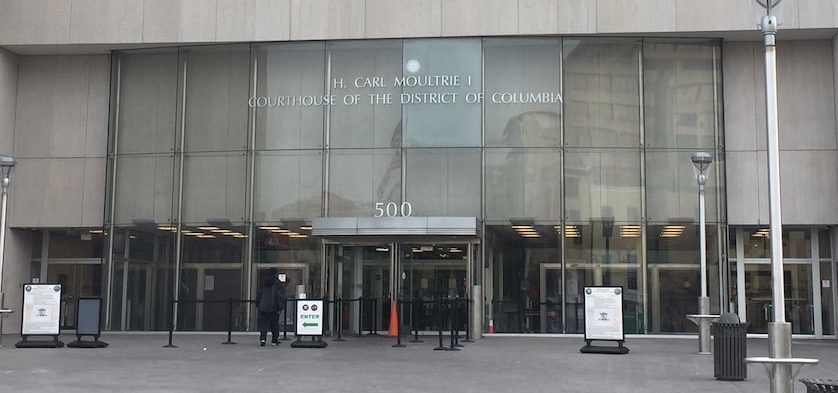
With exceptions, D.C. Superior Court remains closed
Based on a series of orders that were issued last week, D.C. Superior Court remains closed for most purposes due to the Covid-19 pandemic. What this means for criminal cases is as follows.
The Chief Judge has “suspended, tolled and extended” all statutory and rules-based time limits in the D.C. Code. For example, as described in greater detail here, this means that all the time between March 18 and November 9, 2020 will not count in the time calculation with respect to a defendant’s speedy trial rights. The Chief Judge also “tolls” the statute of limitations for criminal offenses – 6 years for most felony offense and 3 years for most misdemeanors – and waives time requirements with respect to preliminary hearing and indictments.
Most status hearing for non-detained defendants has been pushed back to November 9, 2020 at the earliest. For example, a status hearing that was originally scheduled for August 20 has now been re-scheduled for January 21, 2020.
To the extent that any criminal cases will move forward, the hearings will be either remote (with all participants participating by Webex or phone) or partially remote.
For example, arraignments, presentments, bench warrant returns, and extraditions will be continue to be conducted in C10 partially remotely. This means that the defendant will be present. Other parties may participate by teleconference or by phone.
Emergency bond review matters, preliminary hearings for some detained defendants, pre-trial and probation show cause hearings will be held remotely.
Sentencing hearings will be continued to future date unless all parties agree. Jury and non-jury trials will all be continued, although there is some possibility, assuming all parties agree, that the court may soon conduct some remote trials in misdemeanor cases. Preference, presumably, would be for defendants who are being held in custody on misdemeanor charges.
Electronic filings continue along with electronic payments of court fines and fees.
In order to decrease the number of people in custody, the Metropolitan Police Department and other D.C. law enforcement agencies have increased authority to release suspects in advance of their arraignment.
Diversion programs for first-time offenders — deferred prosecution agreements (DPAs) and deferred sentencing agreements (DSAs) – will not expire during the tolling period. At the same time, assuming all conditions have been satisfied, prosecutors still have the discretion to dismiss these cases.
